Tools Required
J 42572 Drive Shaft Seal Clamp Pliers
Disassembly Procedure
- Wrap a shop towel around the axle shaft.
- Place the wheel drive shaft horizontally in a bench vise.
- Remove the large seal retaining clamp from the outer joint seal.
- Remove the small seal retaining clamp from the joint seal.
- Separate the seal from the joint outer race at the large diameter end.
- Position the seal behind the joint face.
- Wipe the grease from the face of the joint inner race, cage, balls, etc.
- Remove the outer joint from the axle shaft.
- Remove the axle shaft retaining ring from the axle shaft.
- Remove the seal from the axle shaft.
- Remove the wheel drive shaft from the vise.
- Wrap a shop towel around the joint outer race splined shaft.
- Place the outer race vertically in a bench vise.
- Make a ball accessible for removal.
- Remove the exposed ball.
- Position the cage and inner race so they are level.
- Repeat steps 14 through 16 in the removal sequence as shown until you remove all 6 balls.
- Position the cage and the inner race 90 degrees to the centerline of the outer race.
- Align the cage windows with the lands of the outer race.
- Lift to remove the cage and the inner race from the outer race.
- Position the cage and inner race so that the larger radius corners of the cage windows are up.
- Rotate the inner race 90 degrees to the centerline of the cage.
- Align the lands of the inner race with the windows of the cage.
- Insert an inner race land into a cage window.
- Pivot the inner race down and remove it from the cage.
- Clean the following thoroughly with clean solvent:
- Thoroughly air dry all the parts.
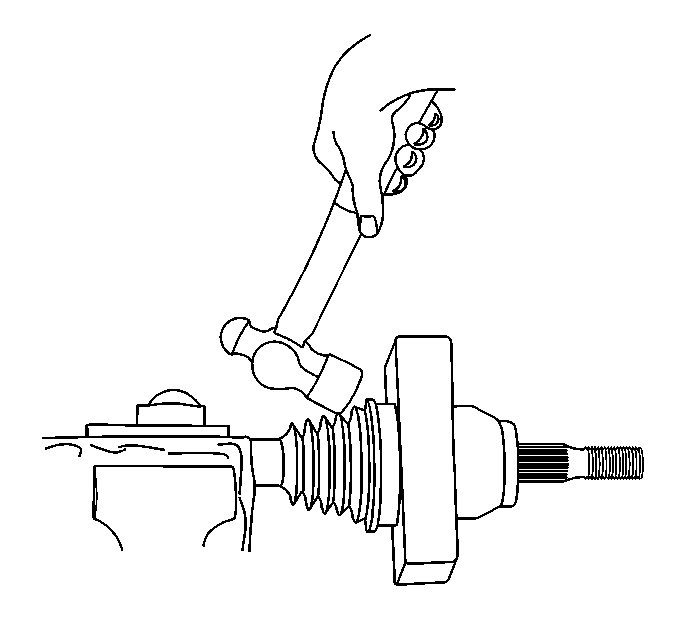
Use a side cutter or other suitable tool and discard the clamp.
Use a side cutter or other suitable tool and discard the clamp.
| 8.1. | Hold the joint housing. |
| 8.2. | Position a wood block between the seal and the joint, along the joint face. |
| 8.3. | Strike the wood block with a hammer to compress the axle shaft retaining clip. |
| 8.4. | Continue to strike the wood block in order to remove the outer joint from the axle shaft. |
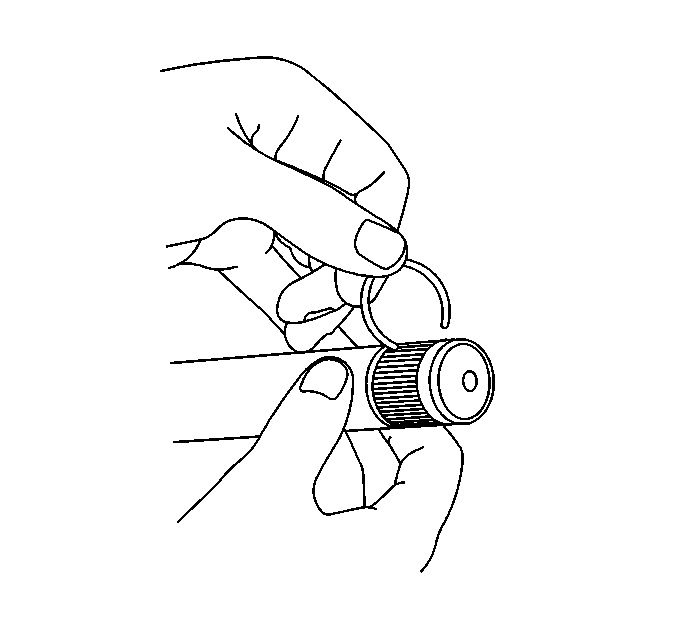
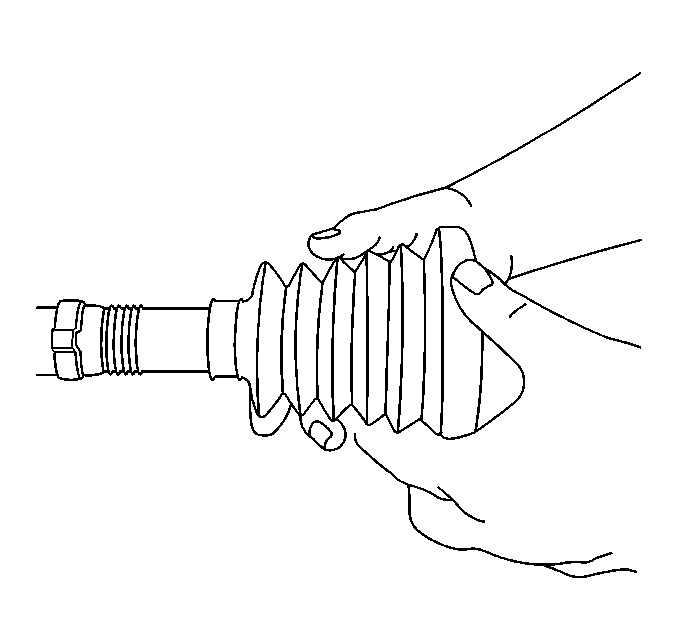
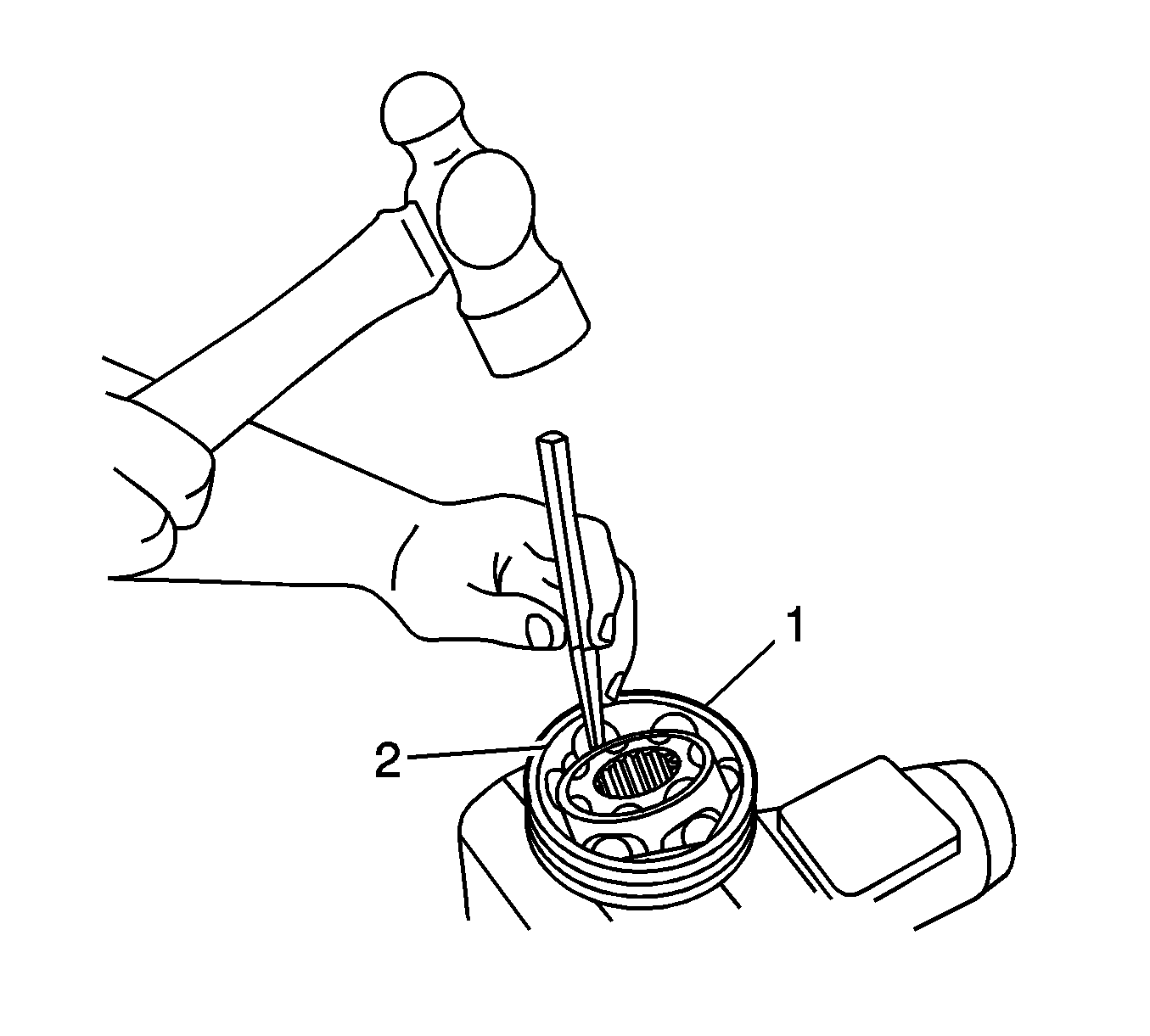
Tap gently on the joint cage, using a brass drift and a hammer, in order to drive a ball toward the bottom of its track. The opposing ball will be made accessible for removal.
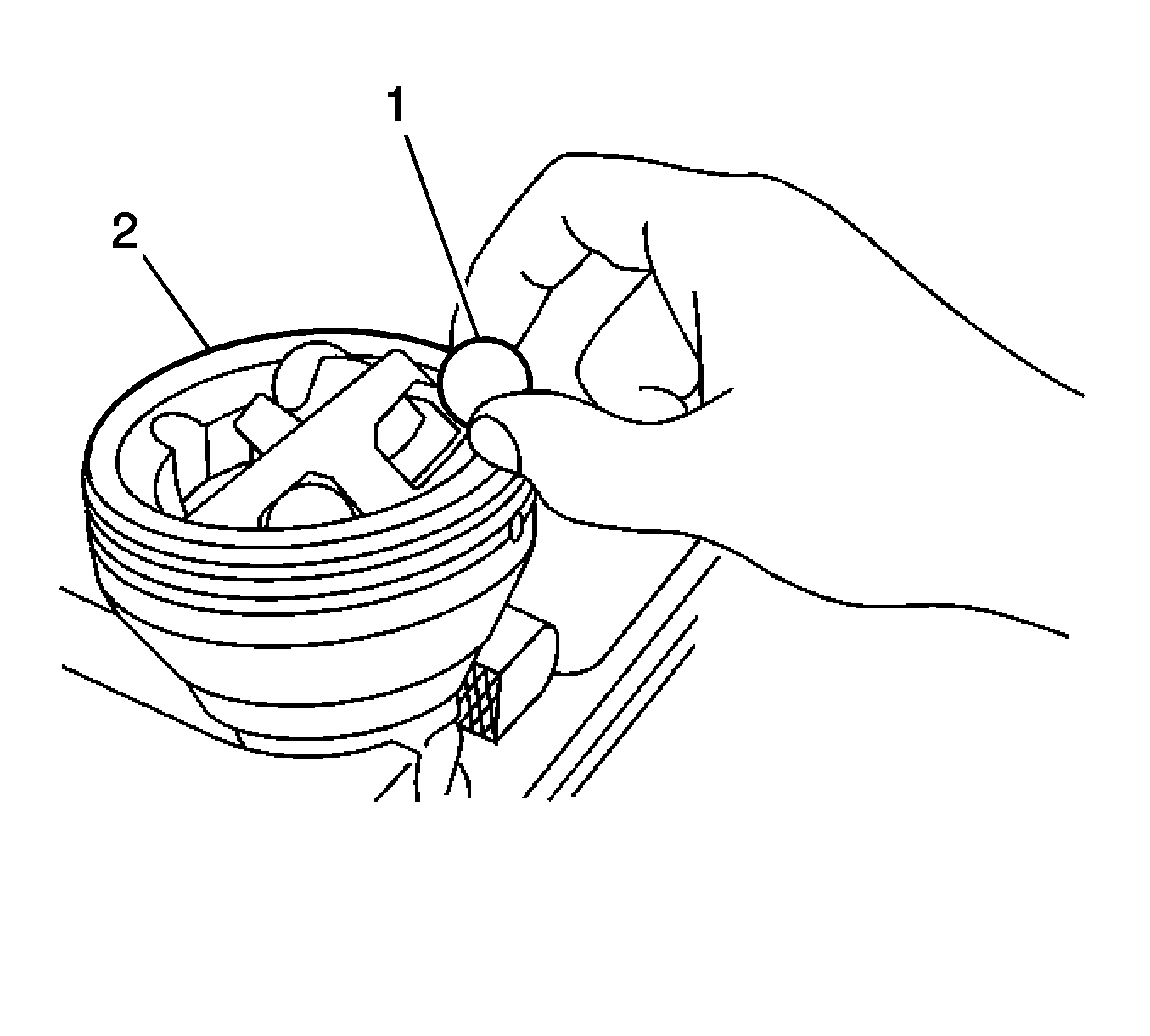
Use a small screwdriver to aid in removal if necessary.
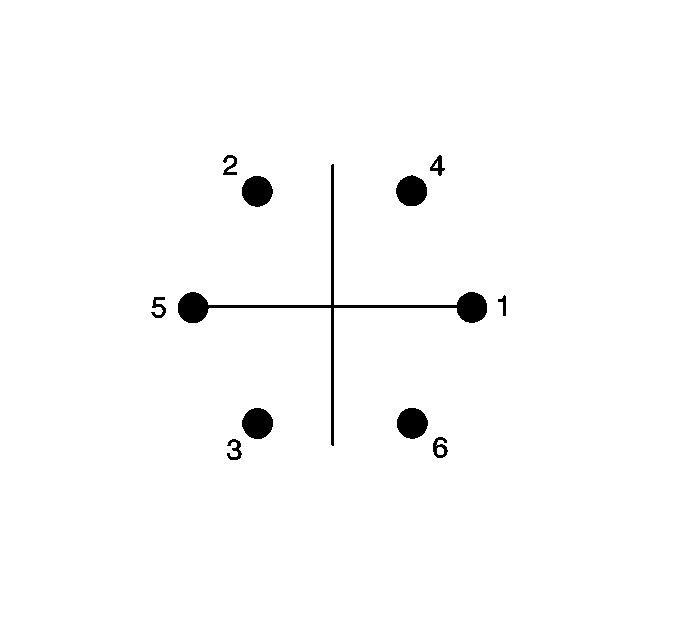
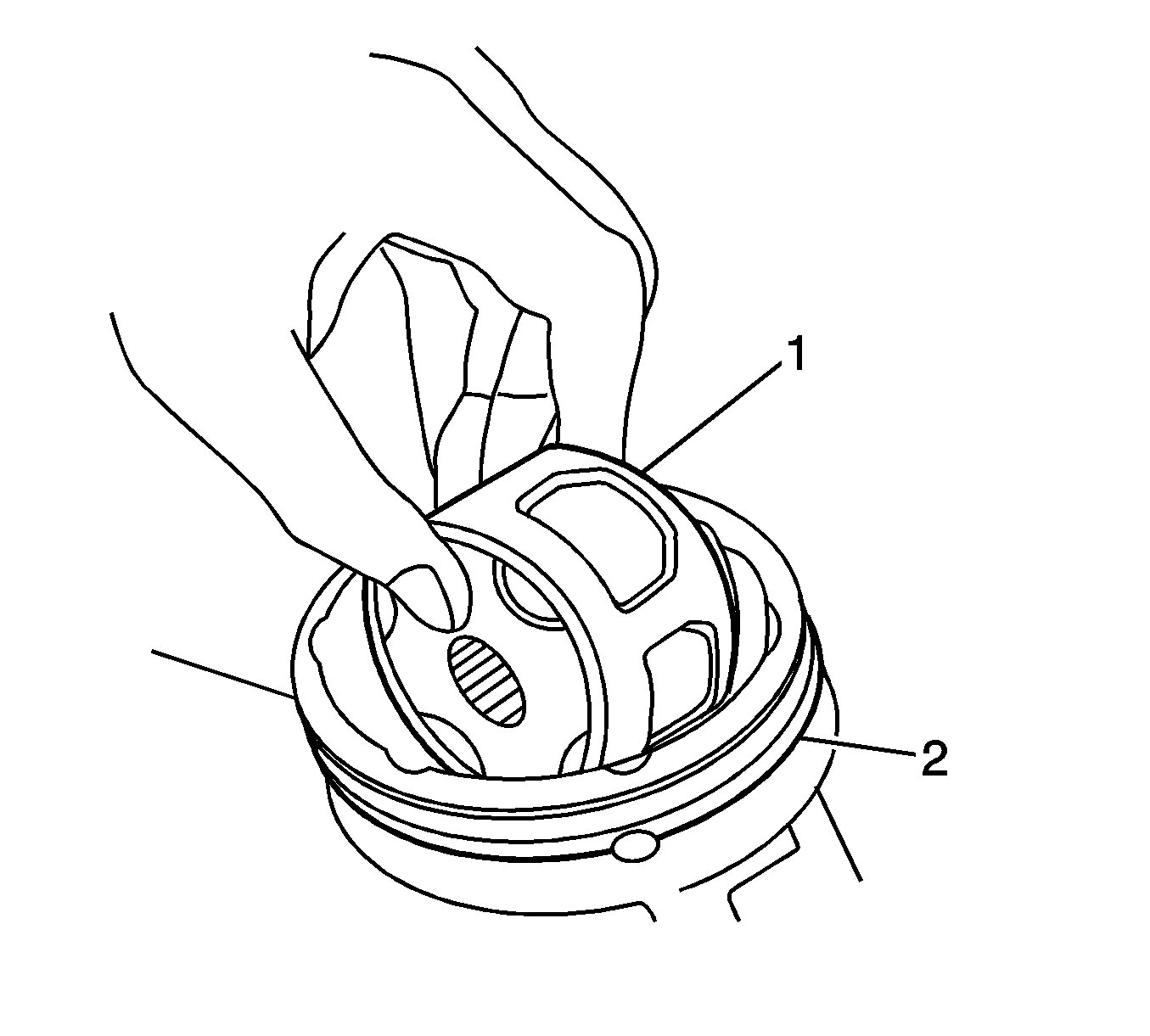
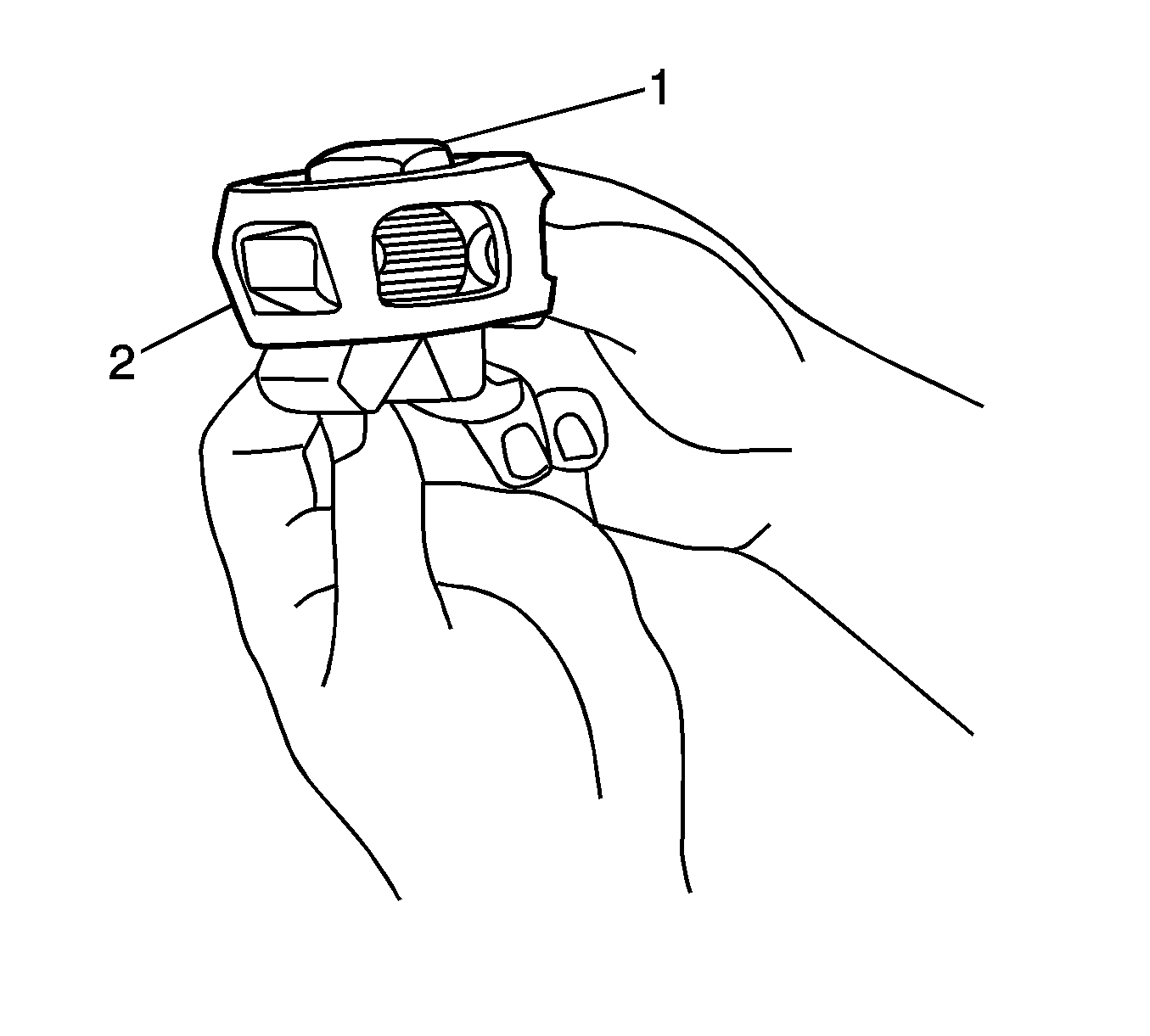
Important: All traces of old grease and any contaminates must be removed.
| • | The inner race |
| • | The outer race |
| • | The cage |
| • | The balls |
| • | The axle shaft exposed end. |
Assembly Procedure
- Position the cage so the larger radius corners of the cage windows are up.
- Position the inner race 90 degrees to the centerline of the cage.
- Begin to insert the inner race up through the bottom of the cage.
- Align a land of the inner race to a window of the cage.
- Insert the inner race land into the cage window.
- Rotate the remainder of the inner race into the cage.
- Rotate the inner race within the cage so that the grooved surface of the inner race is facing up.
- Align the inner race ball tracks with the cage windows.
- Wrap a shop towel around the joint outer race splined shaft.
- Place the outer race vertically in a bench vise.
- Position the cage and inner race 90 degrees to the centerline of the outer race.
- Align 2 cage windows at 0 and 180 degrees.
- Align the two windows at 0 and 180 degrees with 2 of the outer race lands.
- Insert the cage and inner race into the outer race.
- Position the cage and inner race so they are level.
- Align the cage windows and inner race ball tracks with the outer race ball tracks.
- Position a cage window and inner race ball track for ball installation.
- Insert a ball through the cage window onto the inner race ball track.
- Position the cage and inner race so they are level.
- Repeat steps 17 through 19 in the installation sequence as shown until all 6 balls are installed.
- Insert approximately 60 percent of the grease from the service kit into the outer joint.
- Remove the outer joint from the bench vise.
- Wrap a shop towel around the axle shaft.
- Place the wheel drive shaft horizontally in a bench vise.
- Install a new small seal retaining clamp onto the axle shaft.
- Install the seal onto the axle shaft.
- Install a new retaining ring to the axle shaft.
- Position the outer joint horizontally.
- Engage the inner race splines onto the axle shaft splines.
- Compress the axle shaft retaining ring.
- Install the outer joint to the axle shaft.
- Insert the remaining grease from the service kit into the seal.
- Position the small seal retaining clamp (3) onto the neck of the seal (4).
- Position the seal and small retaining clamp to the axle shaft (2) as shown.
- Measure the distance (1) between the edge of the seal and the edge of the last axle shaft groove closing edge; adjust fit accordingly.
- Using the J 42572 , crimp the small seal retaining clamp.
- Measure the gap width (1) in order to ensure it is between 2 and 3 mm (0.079 and 0.118 in).
- Position the large seal retaining clamp (2) onto the seal (3).
- Position the seal and large retaining clamp to the joint outer race (4) as shown.
- Measure the distance (1) between the edge of the seal and the edge of the joint outer race last groove closing edge; adjust fit accordingly.
- Inspect the seal for proper shape.
- Inspect the seal for damage.
- Using the J 42572 , crimp the large seal retaining clamp.
- Measure the gap width (1) in order to ensure it is between 2 and 3 mm (0.079 and 0.118 in).
- Inspect the outer joint for smooth operation. This will also distribute the grease within the joint.


Rotate the inner race and cage assembly in the vertical plane.

Important: The larger radius corners of the cage windows should be positioned up and the grooved surface of the inner race should be visible.
| 17.1. | Press down on the cage following one of the outer race ball tracks. The opposing cage window and inner race ball track will be accessible for ball installation. |
| 17.2. | After installing the first ball, use a brass drift and a hammer to tap gently on the cage, in order to drive the cage and inner race down completely. |
Important: No gap should exist between the ball and the inner race ball track.
Tap the ball lightly with a plastic tipped hammer.

Important: The ball installation sequence must be followed as shown.
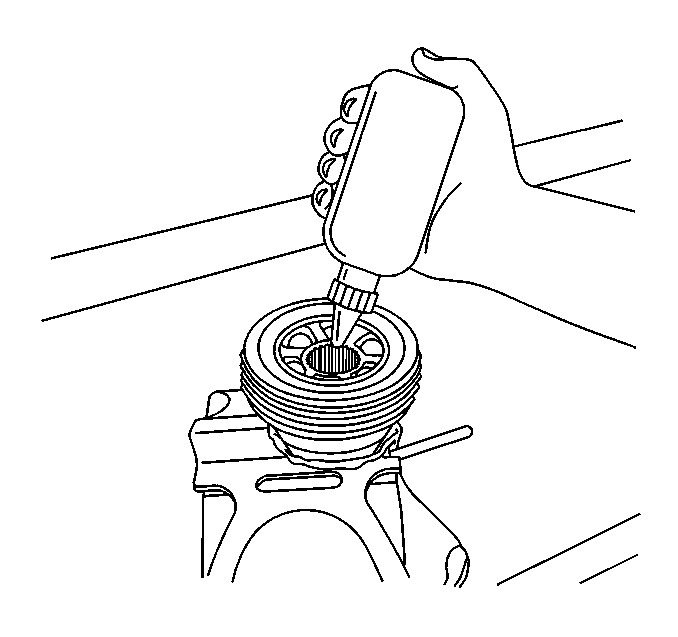
| 21.1. | Spread the grease onto the ball tracks, the balls, the cage and the inner race. |
| 21.2. | Spread the remainder of the grease into the bottom of the outer race. |


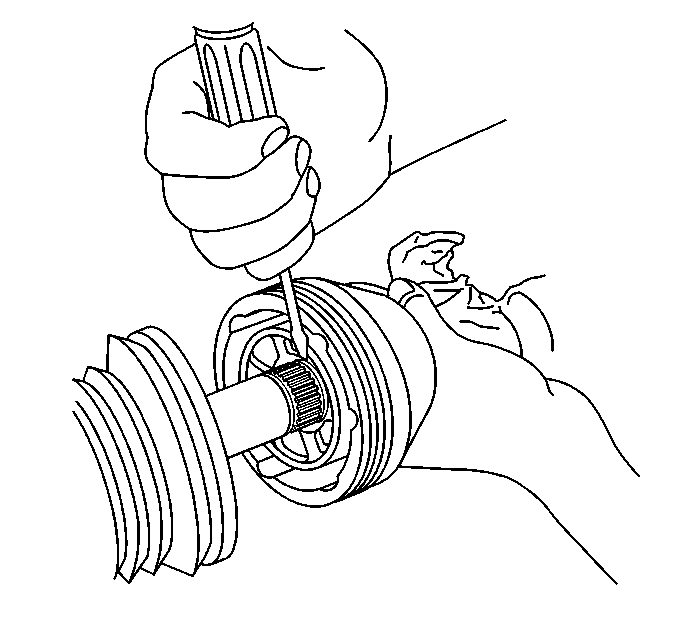
| 30.1. | Press the end of the retaining ring, using a flat bladed tool, into the axle shaft groove while firmly pressing the outer joint onto the axle shaft. |
| 30.2. | Continue to work around the retaining ring until it is compressed. |
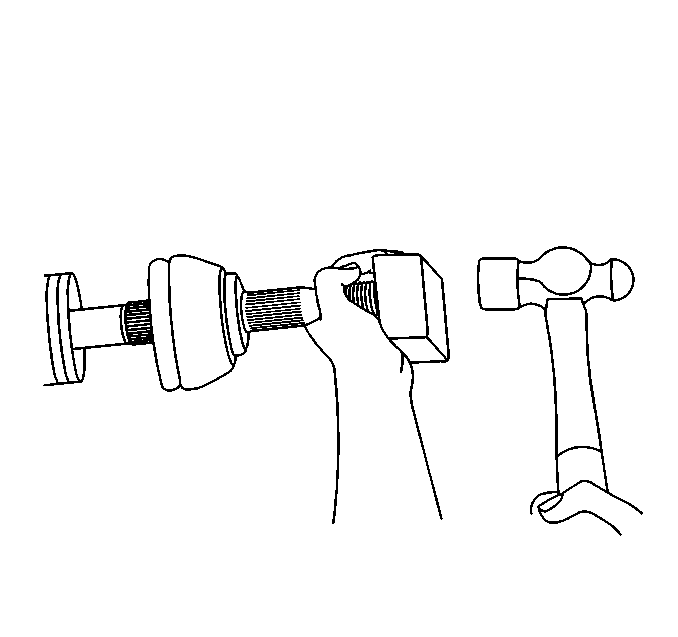
Important: The axle shaft and inner race must be fully seated to each other.
| 31.1. | Position a wood block squarely over the end of the outer joint threaded shaft. |
| 31.2. | Use a hammer to drive the outer joint onto the shaft. |
| 31.3. | Continue to drive the outer joint until the outer joint seats fully onto the axle shaft. |
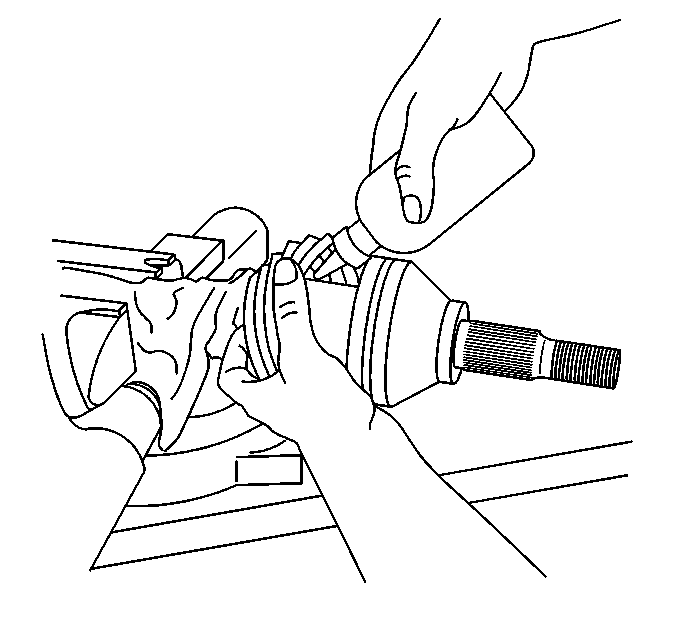
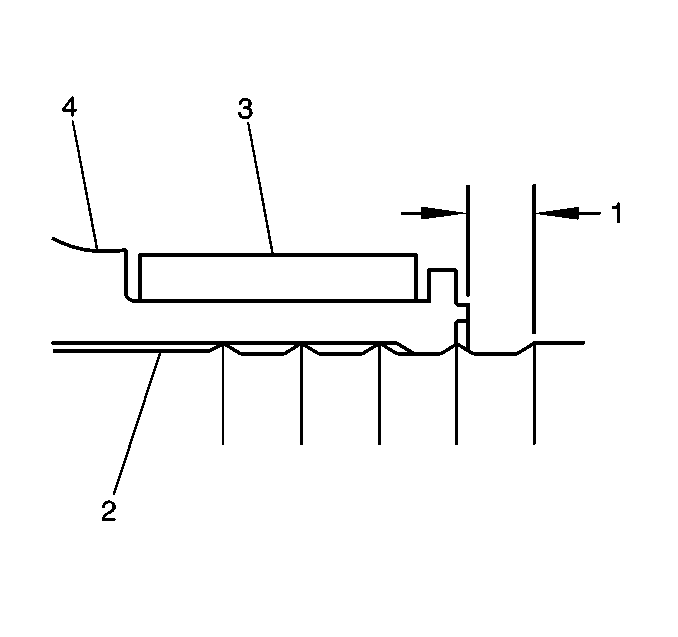
Specification
2.5 mm (0.10 in)
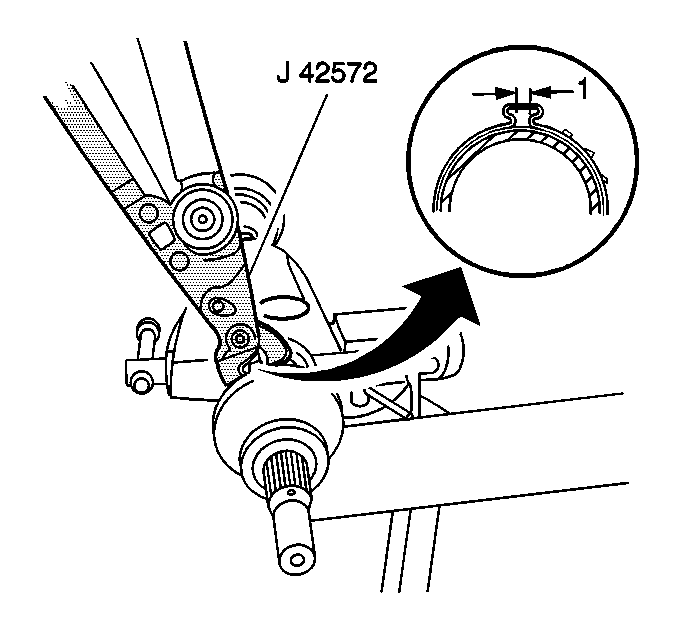
Notice: Use the correct fastener in the correct location. Replacement fasteners must be the correct part number for that application. Fasteners requiring replacement or fasteners requiring the use of thread locking compound or sealant are identified in the service procedure. Do not use paints, lubricants, or corrosion inhibitors on fasteners or fastener joint surfaces unless specified. These coatings affect fastener torque and joint clamping force and may damage the fastener. Use the correct tightening sequence and specifications when installing fasteners in order to avoid damage to parts and systems.
Important: The seal retaining clamp must not be over-tightened or under-tightened.
Tighten
Tighten the small seal retaining clamp to 136 N·m (100 lb ft).
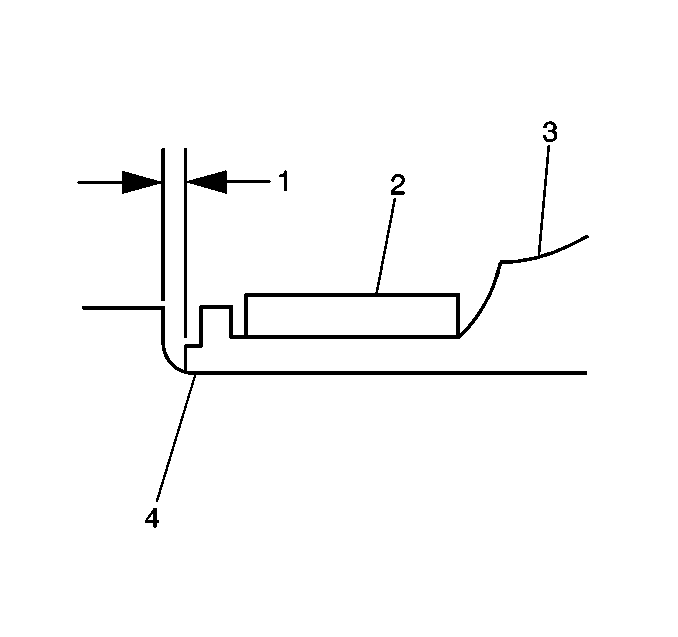
Specification
0.8 mm (0.03 in)

Important: The seal must not be dimpled, stretched or otherwise deformed.
If the seal is not shaped correctly, equalize the pressure in the seal by lifting the seal edge slightly and shape the seal properly by hand.
If the seal has been cut or punctured during assembly, you must discard and replace the seal.
Important: The seal retaining clamp must not be over-tightened or under-tightened.
Tighten
Tighten the large seal retaining clamp to 136 N·m (100 lb ft).
| 45.1. | Hold the wheel drive shaft vertically, with the outer joint at the bottom. |
| 45.2. | Rotate the wheel drive shaft four or five times in a circular motion. |
